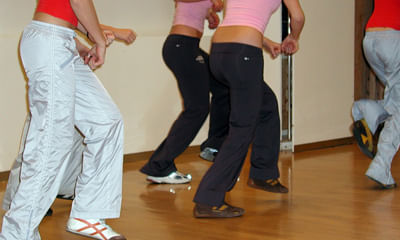Get the App
For Doctors
Login/Sign-up
Last Updated: Aug 29, 2019
BookMark
Report
Why People Have to Pee during the Night
Nocturia is defined as “excessive urination at night”. Normally, the amount of urine the body produces goes down at night, reducing the need to urinate for the 6 to 8 hours that people are sleeping. Since waking to urinate on one occasion during the night is generally considered to be “normal”, having nocturia generally implies that someone wakes up more than once a night to urinate.
Causes of Nocturia:
1.Advancing age
2.Drinking too much fluid during the evening
3.Infection of the bladder or urinary tract
4.Enlarged prostate gland (BPH)
5. Diabetes mellitus
6.Certain medications
7.Sleep apnea.
Treatment of Nocturia:
Treatment for nocturia is directed at the underlying cause. For example, improvement in blood sugars can help in uncontrolled diabetes. If an obstructing prostate gland is the cause, a medication or surgery to reduce the size of the prostate will help. The use of continuous positive airway pressure (CPAP) in someone with sleep apnea can reduce associated nocturia. In a rare condition known as diabetes insipidus, use of a synthetic version of antidiuretic hormone (desmopressin) will help. If taking diuretic medication is responsible, the medication administration may need to be moved to earlier in the day to avoid having to void during the night.
When the underlying cause is not serious enough to warrant specific treatment, several lifestyle measures may help:
Limit fluid intake 3 hours prior to bedtime
Restrict consumption of coffee, caffeinated beverages, and alcohol in the evening.
Elevate legs in the evening to help prevent the development of lower extremity edema.
Wear compression stockings if venous disease is causing fluid accumulation.
Pre-emptive voiding prior to going to bed may delay the need to urinate during the night.
Causes of Nocturia:
1.Advancing age
2.Drinking too much fluid during the evening
3.Infection of the bladder or urinary tract
4.Enlarged prostate gland (BPH)
5. Diabetes mellitus
6.Certain medications
7.Sleep apnea.
Treatment of Nocturia:
Treatment for nocturia is directed at the underlying cause. For example, improvement in blood sugars can help in uncontrolled diabetes. If an obstructing prostate gland is the cause, a medication or surgery to reduce the size of the prostate will help. The use of continuous positive airway pressure (CPAP) in someone with sleep apnea can reduce associated nocturia. In a rare condition known as diabetes insipidus, use of a synthetic version of antidiuretic hormone (desmopressin) will help. If taking diuretic medication is responsible, the medication administration may need to be moved to earlier in the day to avoid having to void during the night.
When the underlying cause is not serious enough to warrant specific treatment, several lifestyle measures may help:
Limit fluid intake 3 hours prior to bedtime
Restrict consumption of coffee, caffeinated beverages, and alcohol in the evening.
Elevate legs in the evening to help prevent the development of lower extremity edema.
Wear compression stockings if venous disease is causing fluid accumulation.
Pre-emptive voiding prior to going to bed may delay the need to urinate during the night.



+1.svg)
